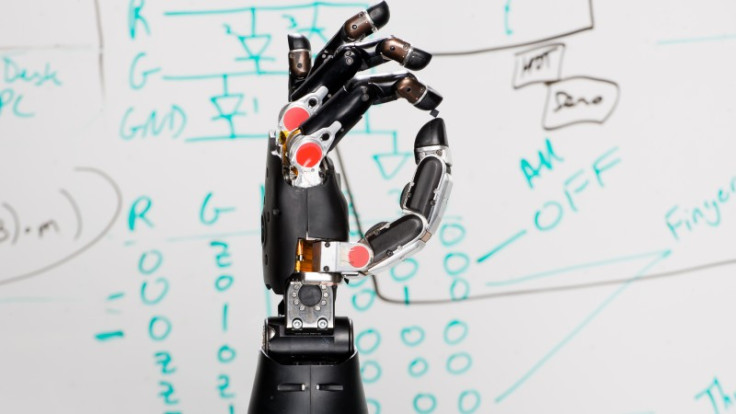Darpa develops robotic prosthetic with 'near-natural sense of touch'

The world's first prosthetic hand capable of providing a "near-natural" sense of touch to its wearer has been developed by the US Defence Advanced Research Projects Agency (DARPA). The advance, made by the Revolutionising Prosthetics program, could soon find use with people living with paralysed or missing limbs.
The robotic prosthetic has already been tested on a 28-year-old volunteer who had been paralysed for more than a decade. By connecting the device directly to his brain's sensory cortex - the region of the brain responsible for identifying tactile sensations - the volunteer was able to identify when individual fingers were being touched.
"We've completed the circuit," said Darpa program manager Justin Sanchez. "Prosthetic limbs that can be controlled by thoughts are showing great promise, but without feedback from signals travelling back to the brain it can be difficult to achieve the level of control needed to perform precise movements. By wiring a sense of touch from a mechanical hand directly into the brain, this work shows the potential for seamless bio-technological restoration of near-natural function."
The technology was on show at Wait, What? A Future Technology Forum on 10 September, and is one of several neurotechnology-based advances emerging from DARPA's Biological Technologies Office. While it is the first prosthetic hand capable of delivering a sense of touch, it is not the first artificial limb to provide tactile feedback to the wearer.
Earlier this year, researchers in Austria created a prosthetic leg that connects six sensors on the base of the limb to the remaining foot nerve endings in the wearer's stump. Rather than connecting directly to the brain, however, the prosthetic connects the nerve endings to healthy tissue in the patient's thigh.
Darpa's latest research is yet to be peer reviewed but early indications from the volunteer testing the technology give a hint of the technology's future potential. The agency claims that he reported the feeling "was as if his own hand were being touched" and responded to blindfolded touch tests with nearly 100% accuracy.
"At one point, instead of pressing one finger, the team decided to press two of them without telling him," Sanchez said. "He responded in jest asking whether somebody was trying to play a trick on him. That is when we knew that the feelings he was perceiving through the robotic hand were near-natural.
"Darpa's investments in neurotechnologies are helping to open entirely new worlds of function and experience for individuals living with paralysis and have the potential to benefit people with similarly debilitating brain injuries or diseases."
© Copyright IBTimes 2025. All rights reserved.






















